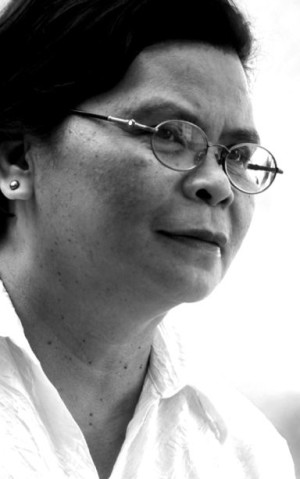
DELACERNA
More than a decade ago, I visited an NGO office where I was also involved in.
The conversation touched on the Martial Law experiences.
One of the staff stated that she never saw me in the rallies.
She added that it was in joining the rallies that she met her boyfriend who eventually became her husband.
I was amused with the idea that joining rallies would be the only criterion of showing resistance against the dictatorship.
Before I could comment, the head of the NGO started to recall the activities which I organized and she attended, foremost of which was “Yutawhan” on March 19, 1972 at St. Catherine’s School in Carcar.
It all started in 1971 when the late Sister Josefina Diaz, ICM gave a talk on the national situation at the first faculty meeting for the schoolyear.
Eight faculty members responded to the call and visited the barrios of Carcar, held some teach ins as they were called which earned them the title activists.
With the heat of the national elections, they knew where to fit in.
They organized a rally for Clean Elections on a Sunday around the town which culminated in a mass at the Cristo Rey Monument of the Plaza.
There were two student speakers at the rally.
At Mass, the four mayoralty candidates spoke during the homily.
They also penetrated the precincts during elections by serving in various voting precincts.
Realizing that there is a more creative approach to invite more awareness, the group decided to hold an evening of nationalistic songs.
We gathered twelve songs from persons including parents of students who used to sing them during the Japanese Occupation and the most recent at the time.
We requested the Carcar Rondalla to accompany the singing and created our own choreography.
Then “Yutawhan” (yutang natawhan or land of birth) became a reality as a unique concert with fifty people (faculty and students) performing on the SCS stage on March 19, 1972.
On my part it was my first venture into Cebuano writing as I wrote the script and acted as narrator of the concert.
The impact of “Yutawhan” was such that there was an encore for the Independence Day celebration in the public Tennis Court on June 12, 1972.
After “Yutawhan” Martial Law was declared and we went separate ways – teaching in other places, becoming community organizers.
In 1974 I moved to UP Cebu and concentrated on the Social Studies teachers and together with Sofia Logarta and Fred Montaño we organized and nurtured the Cebu Association of Social Studies Teachers (CASSE) which tackled content and strategy to help promote a nationalistic and relevant education.
Some of the topics were Critical Thinking, Analyzing Data, Techniques of Questioning, Teaching Values Education.
The group met every last Saturday of the month with different member schools hosting the meeting.
At the same time, there was also participation in the movement of the Alliance of Concerned Teachers (ACT) especially on the fight for teachers’ rights.
Then in the 1980s came Education Forum (EF), the education arm of the Association of Major Religious Superiors in the Philippines, the response of the educational private sector for a relevant, nationalistic and scientific Philippine Education through relevant pedagogies, writing and publishing textbooks, readings, workbooks for Communication (English and Filipino), Philippine History, Socio-Economics, World History, Science, Mathematics.
They held EF Summer Institutes for these subject areas all over the Philippines.
For the EF Cebu Chapter, I was the coordinator from 1984 to 1988 and we held institutes for all these areas with the great demand for the English and Philippine History areas.
The Institutes were held for five days.
Most of our resource persons are now national figures. Prospero “Popoy” de Veyra, the CHED head, for World History, Ronnie Holmes of Pulse Asia for Philippine History, Ma. Luisa Doronila, for English and publication of “Towards Relevant Philippine Education” and other teaching materials, Lito Villegas for Socio-Economics.
With the present situation, there is a demand to revive CASSE.
The initiative should come from the teachers themselves just like we did in the 70s
In remembrance of Martial Law, we do not only remember the mammoth rallies but especially the unhighlighted efforts done in the various sectors.
In the field of education, it is the educators not the officials of the department who can raise the level, the quality of education of the Filipino people.